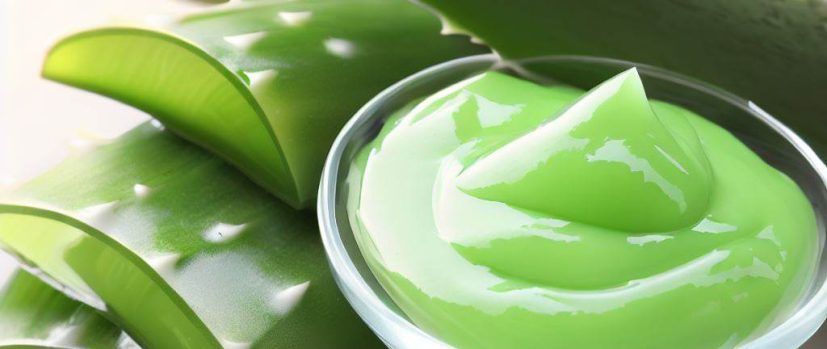Does Aloe Vera Remove Wrinkles?
In the world of skincare, the ‘plant of immortality,’ Aloe Vera, has seen a surge in popularity. This ancient plant, known for its medicinal properties, is being used in numerous skincare products. A noteworthy example includes organic Aloe Vera cream, appreciated for its hydrating and soothing effects. One question, however, lingers in everyone’s mind: can Aloe Vera help remove wrinkles?
To answer this in the most subtle way, going back 5000 years ago isn’t a bad idea. Ancient Egyptians initially began the use of the aloe vera plant, followed by the Romans. It is since then, the world has started knowing the magical advantages of this miraculous herb.
The Mechanism Of Aging And Wrinkles
Our skin forms the barrier that separates the outer environment from the body. Apart from saving the body from water loss, it has other cosmetic roles as well. However, aging begins right from the time an individual is born. Both intrinsic as well as extrinsic factors induce cutaneous aging of the skin.
Aging is a natural process, along with it wrinkles are an inevitable part of life. As we age, our bodies produce less collagen, the protein responsible for maintaining the skin’s elasticity. The decrease in collagen leads to the skin losing its firmness, resulting in wrinkles and fine lines.
The Role Of Aloe Vera In Stimulating Collagen Production
The green succulent plant, Aloe Vera, is rich in important vitamins and antioxidants. These elements are considered to boost collagen production. As a result, the regular application of Aloe Vera may aid in maintaining skin elasticity and potentially minimizing the visibility of wrinkles. We all are well aware of its healing properties, but Aloe is also rich in skin-nourishing benefits.
The most intriguing fact about the plant is its unique look which appears more like a cactus. It has short stems and can store water in the leaves. Its thick, pinpointed green leaves make it a recognizable plant. These can grow anywhere from 12-19 inches and have slimy tissue present inside each leaf.
Delving Into The Composition Of Aloe Vera
Aloe Vera’s effectiveness is attributed to its composition. The plant is packed with Vitamins C and E, beta-carotene, all of which are known for their anti-aging properties. These nutrients help combat free radical damage and promote skin elasticity. Replenishing these nutrients topically can help maintain a youthful glow and possibly reduce the appearance of wrinkles.
Being a rich source of antioxidants, the succulent herb consists of numerous active enzymes, vitamins, and minerals. To date, scientists have numbered 160 significant ingredients found inside the aloe leaves. What’s more intriguing is the healing properties that the plant bears, benefitting the human skin for years.
-
Vitamins
You might be a little wrong if you think that Aloe Vera gets its healing properties from the Vitamins. These ingredients synergistically combine with other herb ingredients, making it a complete healing package. Popular vitamins found in Aloe Vera are B1, B2, B12, and, of course, B6.
-
Amino Acids
Our body needs a range of amino acids to rejuvenate cells. However, it is incapable of producing them itself. It is due to the aloe vera plant, the body receives 7 to 8 amino acids needed by the body. Additionally, 20 out of 22 amino acids needed by the body are achieved by a single tissue of the immortal herb.
-
Minerals
Third on our list comes minerals that consist of micronutrients needed by the human body to stay healthy. Some common minerals found in Aloe vera are magnesium, also known as the “anti-depressant” mineral. Another ingredient found in the plant is zinc which protects the skin from free radicals.
Incorporating Aloe Vera Into Your Skincare Routine
Incorporating Aloe Vera into your skincare regime can be a simple task. By applying an organic Aloe Vera cream daily to your face and neck, you can provide your skin with the hydration it needs while supporting collagen production. Over time, this may lead to a reduction in the appearance of wrinkles. However, consistency is the key to achieving the desired results.
Fights acne
It goes without saying that Aloe Vera consists of both anti-inflammatory and antibacterial properties. These ingredients help in controlling acne-causing bacteria and their long-lasting impacts on the skin. If used daily, the gel of this plant reduces blemishes, acne scars, and pigmentation.
Has Moisturizing Effects
When used as a moisturizer, Aloe Vera helps unclog the skin pores, making the skin soft. At the end of the day, you will not find the skin greasy as it contains a formula of 95% water. During dry summer months, Aloe Vera gel acts as the best lightweight moisturizer for your skin.
Soothes Skin Irritation
Being an ingredient suited for all skin types, Aloe’s cooling properties soothe skin irritation, redness, and other inflammations. Consequently, it is considered as the most effective natural remedy to reduce sunburn and keep the skin glowing forever.
Additional Benefits Of Aloe Vera
Aloe Vera offers more than just potential anti-wrinkle benefits. It is known for its ability to soothe sunburns, moisturize the skin, and even reduce acne and inflammation. This versatile plant can also aid in treating minor cuts and burns due to its natural antibacterial properties. Furthermore, Aloe Vera’s hydrating properties make it an excellent choice for combating dry skin conditions. Given its rich nutrient composition, it’s a fantastic addition to any skincare routine, regardless of skin type or age.
Takeaways
In conclusion, while Aloe Vera may not completely erase wrinkles, its properties make it a potent ally in the fight against skin aging. Its rich composition of vitamins and antioxidants, coupled with its ability to stimulate collagen production, makes it a promising addition to your skincare routine. Applying organic Aloe Vera cream daily could potentially reduce the visibility of wrinkles over time.
However, keep in mind that Aloe Vera is just one component of a holistic skincare and wellness approach. Adequate hydration, nutrition, sun protection, and proper sleep also play integral roles in maintaining skin health. Lastly, it’s always recommended to consult with a skincare professional or dermatologist to understand what’s best for your skin type and needs.








